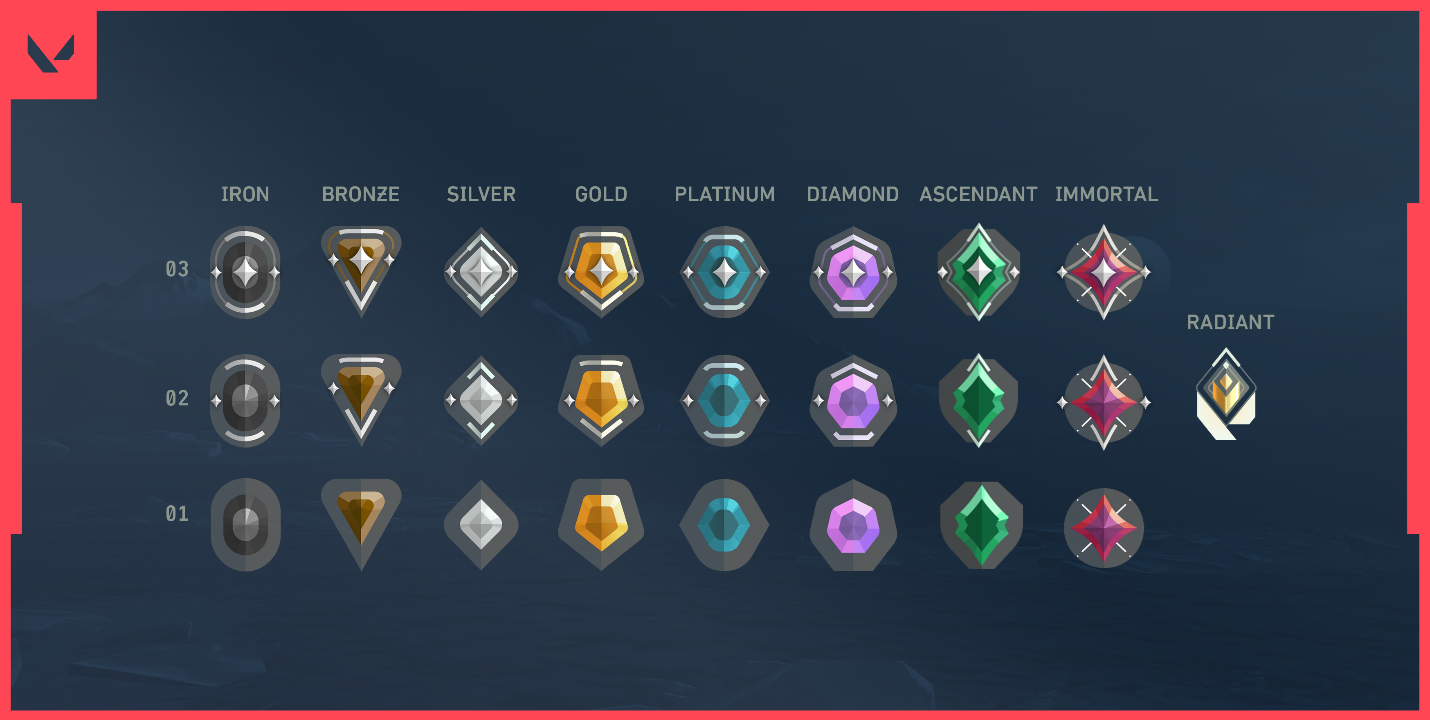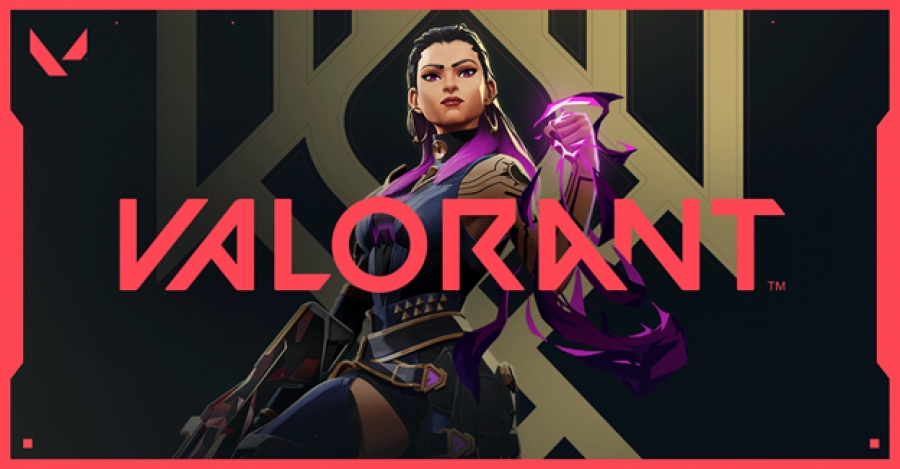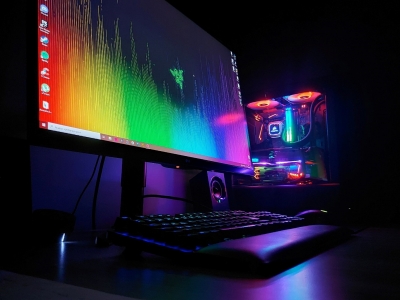Valorant is a highly competitive first-person shooter game that has taken the gaming world by storm. One of the key elements of the game is the ranking system that determines the skill level of players.
The game uses a complex system of skill rating to ensure fair and competitive matches. Let’s check out how all of this works and what is the best way to rank up in Valorant!
How To Get Valorant Rank?
In order to get your first Valorant rank you will first need to unlock the competitive mode. To do that, you must reach the overall profile level 20. This system prevents smurfs and complete beginners to ruin the game for other players.
One profile level equals 5000AP (account points), so you will need to acquire at least 95,000AP to be able to access competitive rated mode. You can acquire those by playing Unrated, Deathmatch, and Spike Rush. By the time you get to level 20, you will already be familiar with the basics of the game and have enough map knowledge to play competitively.
Valorant Ranks

There are nine different rank groups: Iron, Bronze, Silver, Gold, Platinum, Diamond, Ascendant, Immortal, and Radiant. Each tier represents a different skill level, with Iron being the lowest and Radiant being the highest.
Besides Radiant, each skill group has 3 tiers to further distinguish players and make a system even fairer. For example, if you win enough games in Silver 3 and rank up, your next rank will be Gold 1. It works the same way for all the ranks except for Radiant. Radiant is the rank for professional Valorant players and only 500 players at the time can enjoy that rank.
How the Ranking System Works?
The ranking system in Valorant is designed to be both challenging and rewarding. As players progress through the ranks, they will face more skilled opponents, and the gameplay becomes more intense. That’s what makes Valorant so interesting to the players, according to Rivalry stats, Valorant had the highest growth in the esports industry and attract more and more attention every year.
It is a great way to measure the player's progress and skill level. In addition to that, it helps the game to match opponents of similar skill levels and ensure fair and competitive matches.
A player's win/loss ratio is one of the most important factors that can affect their ranking. Winning matches will increase your skill rating and help you move up in ranking while losing matches will decrease your skill rating and make it harder to rank up.
Individual performance is also important. If a player consistently does well in matches, they will have a higher skill rating than a player who does not perform as well.
There are 2 main aspects that track just that; Rank Rating (RR) and Match Making Rating (MMR).
RR is a value between 0 and 100. Once you reach 100 RR points you will rank up. You can get RR points by winning matches and the better your team performs, the more RR points you will get. On the other side, if you lose the match, you will lose a certain amount of RR points too.
MMR is a hidden factor that helps the ranking system understand the individual player's skill. No matter if you win or lose, it rates your overall performance, how well you perform against others, do you win duels, the number of assists per game, the damage inflicted, and abilities usage. So, even if you lose the game and perform well, your MMR will still be increased. The higher the MMR your account has, the more RR points you get for each win and rank up faster.
Play Restrictions
There are some play restrictions and certain ranks can’t play together. Below is a table that represents ranks that can play together.
|
LOWEST RANK IN THE PARTY |
HIGHEST RANK IN THE PARTY |
|
Iron and Bronze |
Silver |
|
Silver |
Gold |
|
Gold |
Platinum |
|
Platinum, Diamond, Ascendant, Immortal, and Radiant |
Exactly 1 tier higher max (Example: Diamond 2 can queue with up to Ascendant 2) |
Of course, the party of 5 can avoid those restrictions and play together no matter the rank. However, there are some RR penalties and everyone in the party will receive 25% fewer RR points in case they win. In certain cases, if a player is Radiant, the team will receive a 75% RR reduction and the Radiant player will receive a 90% reduction or RR points.






